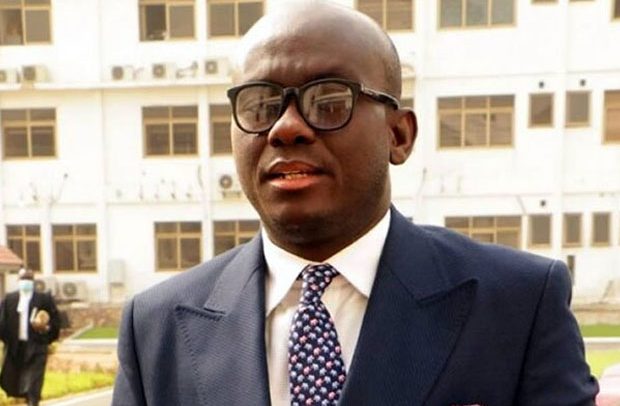Godfred Yeboah Dame
THE ATTORNEY General and Minister for Justice, Godfred Yaboah Dame, has indicated that the Promotion of Proper Human Sexual Rights and Ghanaian Family Values Bill, 2021, popularly referred to as the Anti-LGBTQI+ Bill, is not entirely unconstitutional but faces challenges of implementation if the bill is passed by Parliament.
The bill, which is currently under review by the Parliamentary Select Committee on Constitutional, Legal and Parliamentary Affairs, seeks to provide for human sexual rights and Ghanaian family values while seeking to prohibit the activities of gays, lesbians, bisexuals, transgender and queers in Ghana. A person found guilty could face up to 10 years’ imprisonment if the bill is passed.
The Attorney General, in a response to a request by the committee seeking the government’s position on the bill, indicates that while some aspects of the bill pass the test of constitutionality, other aspects of it in its present form “violate some fundamental rights and freedoms enshrined in the Constitution, including the right to freedom of expression, thought and conscience and freedom from discrimination.”
He observes that unnatural carnal knowledge of a person with or without the consent of that person and unnatural carnal knowledge of an animal is already criminialised by the Criminal and Other Offences Act, 1960 (Act 19) but the Anti-LGBTQI+ Bill seeks to state a broader prohibition of unnatural carnal knowledge or prohibition of sexual intercourse between persons of same sex, and there is nothing unconstitutional about it.
Again, Mr. Dame observes that the restrictions in the bill on the dissemination of certain kinds of information directed at children are consistent with Article 12(2) of the 1992 Constitution while also holding that the prohibition on adoption, fosterage and marriage between persons of the same sex placed by Clauses 17 and 18 of the bill are consistent with Articles 12(2) and 17(4) of the constitution.
He, however, points out that there are likely to be implementation challenges to be faced after the bill has been passed, some of which include the violation of some fundamental human rights and freedoms, particularly the right to privacy.
Mr. Dame is also of the view that the implementation of the bill may hold financial implications for the country, particularly regarding the collective responsibility of citizens, educational institutions and other institutions to promote the values enshrined in the bill, especially when the bill is a private member’s bill.
Other financial implications highlighted by the Attorney General include the payment for medical assistance or therapy by an approved service provider and the provision of prison facilities for persons convicted of an offence to serve prison terms.
In all, the Attorney General raises issues with 14 out of the 25 clauses contained in the bill on ground that they either overlap with existing laws, or difficult to prove, and suggest that changes are needed to be made to them. Such clauses are 1, 2, 3, 4, 5, 6, 8, 9, 14, 19, 20, 21, 22 and 23.
Nine of the clauses, however, pass the test of constitutionality according to the Attorney General, and they include Clauses 7, 10, 11, 12, 13, 15, 16, 17 and 18.
Mr. Dame chose not to pass any comment on Clause 24 which empowers “the Minister under the Bill to, in consultation with the Ministers responsible for Health and Gender, Children and Social Protection, make regulations to regulate an approved service provider, among others.”
The Attorney General, however, suggests the deletion of Clause 25 of the Bill, which amends the First Schedule of the Extradition Act 1960, (Act 22) to make an offence committed under the bill an extradition offence.
“It is respectfully submitted that the offences provided for in the First Schedule of Act 22 such as murder, rape, abduction, piracy and slavery are globally recognised offences. Attention is drawn to the fact that the offences created under the bill do not exist in many parts of the world. It is advised that Clause 25 be deleted,” Mr. Dame noted.
He also suggested the trimming of the title of the bill to read Human Sexual Rights and Family Values Bill, 2021, as the use of the word ‘proper’ connotes subjectivity and the further use of ‘Ghana’ in the title is unnecessary as a bill passed in Ghana relates to Ghana and applies to all persons in Ghana unless a contrary intention is expressly stated.
BY Gibril Abdul Razak


